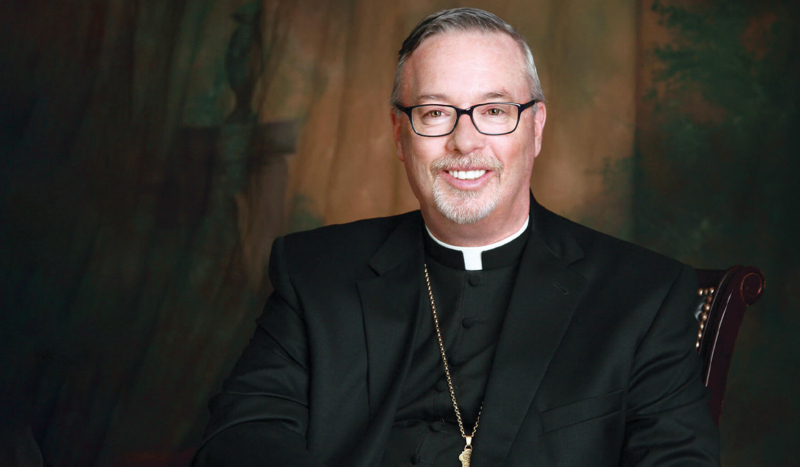
CV NEWS FEED // Vermont’s leading prelate testified before the state’s Senate Judiciary Committee on Friday defending the sacramental seal of confession.
Vermont’s legislature is considering a bill that would force Catholic priests to report information about sexual abuse, even when that information was confessed privately in the Sacrement of Penance.
First Amendment Right
Bishop Christopher Coyne of the Diocese of Burlington, VT, testified that the Vermont bill “crosses a Constitutional protective element of our religious faith: the right to worship as we see fit.”
The Code of Canon Law 983 §1 states “The sacramental seal is inviolable; therefore it is absolutely forbidden for a confessor to betray in any way a penitent in words or in any manner and for any reason.” Priests who divulge confessions are subject to automatic excommunication.
The vast majority of communications priests have with the people they serve are not privileged, Bishop Coyne noted. In these settings, priests are already mandatory reporters and subject to the laws of the state. But “the sacramental exemption,” though narrow, is off-limits. “Requiring clergy to report child abuse learned of during penitential communication would infringe on our first amendement rights,” the bishop said.
Coyne acknowledged the state’s intention to protect minor children from abuse, as well as the Church’s recent sex abuse crisis. He argued, however, that “disregarding fundamental religious rights is unnecessary” in the effort to ensure the safety of minors. The sanctity of the sacrament can be respected and criminals brought to justice at the same time.
Other Threats to Confessional Seal
A similar bill removing the clergy-penitent privilege is also under consideration in Washington this year. Bishop Thomas Daly of Spokane recently told the Washington Examiner that he and the priests of his diocese would choose prison rather than comply with the proposed law.
“I am troubled if someone seems to think that this is negotiable,” stated Daly. “I worry that that bond of trust that people have given their life for would suddenly seem to be up for renegotiation.”
“There are priests who have died rather than violate the seal…”
Ethics and Public Policy Center Fellow Eric N. Kniffin submitted a public comment on the Washington law, saying:
While I applaud the Legislature’s desire to protect children and strengthen the State’s mandatory reporter law, this is not the best way to advance the State’s interests in protecting children and bringing sexual predators to justice.
Kniffin pointed out that
- The confidentiality of the Sacrament of Penance is a “longstanding and fundamental” Catholic belief
- The clergy-penitent privilege is not a ‘loophole’ (as the Associated Press has characterized it in its coverage), but is “a venerable part of our legal system”
- There is no evidence that the seal of the confessional has contributed to the sexual abuse crisis in the Catholic Church
- The legislation in question directly attacks the Catholic Church’s sacraments and is therefore unconstitutional
Kniffin told the Washington Examiner that the Vermont and Washington bills would be entirely ineffective, given the deeply held belief of Catholics:
There’s a huge variety [of opinion] within the church, but if you want to talk about something that’s going to unify people, [it’s] that confession is off limits, that’s something that everyone understands… There are priests who have died rather than violate the seal of the confessional. You’re not going to succeed in getting priests to turn state’s evidence on what they hear in the confessional.

